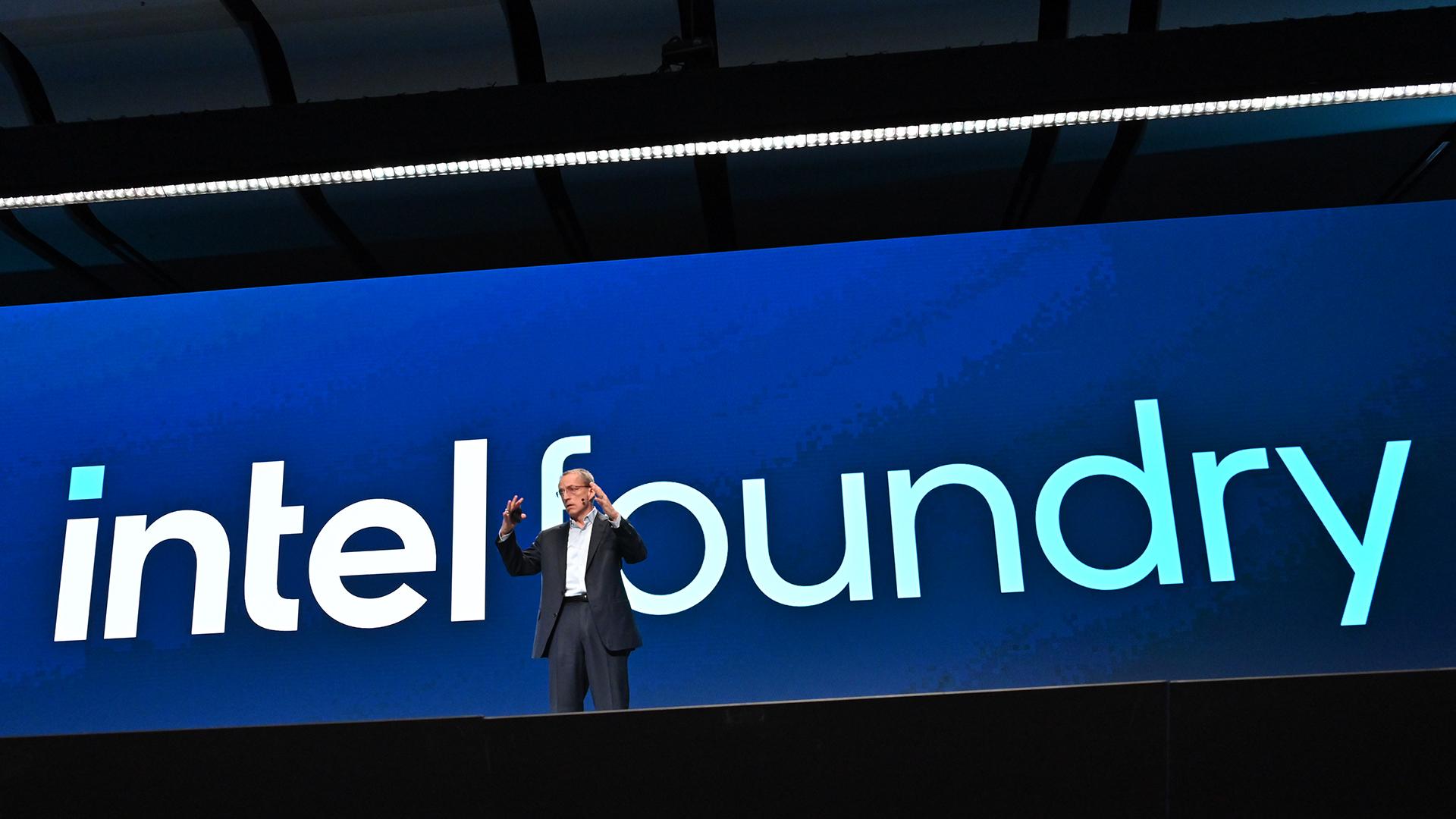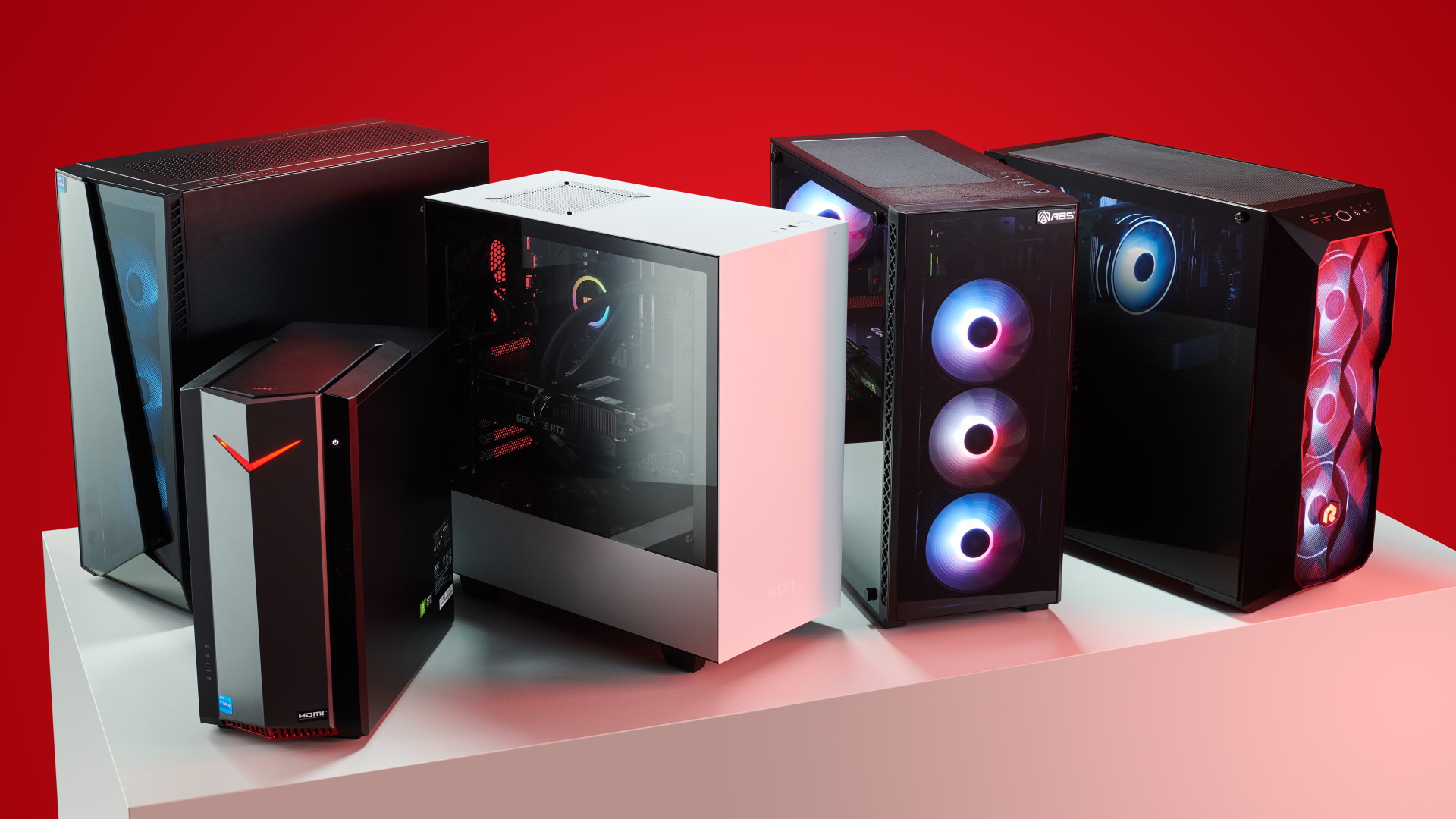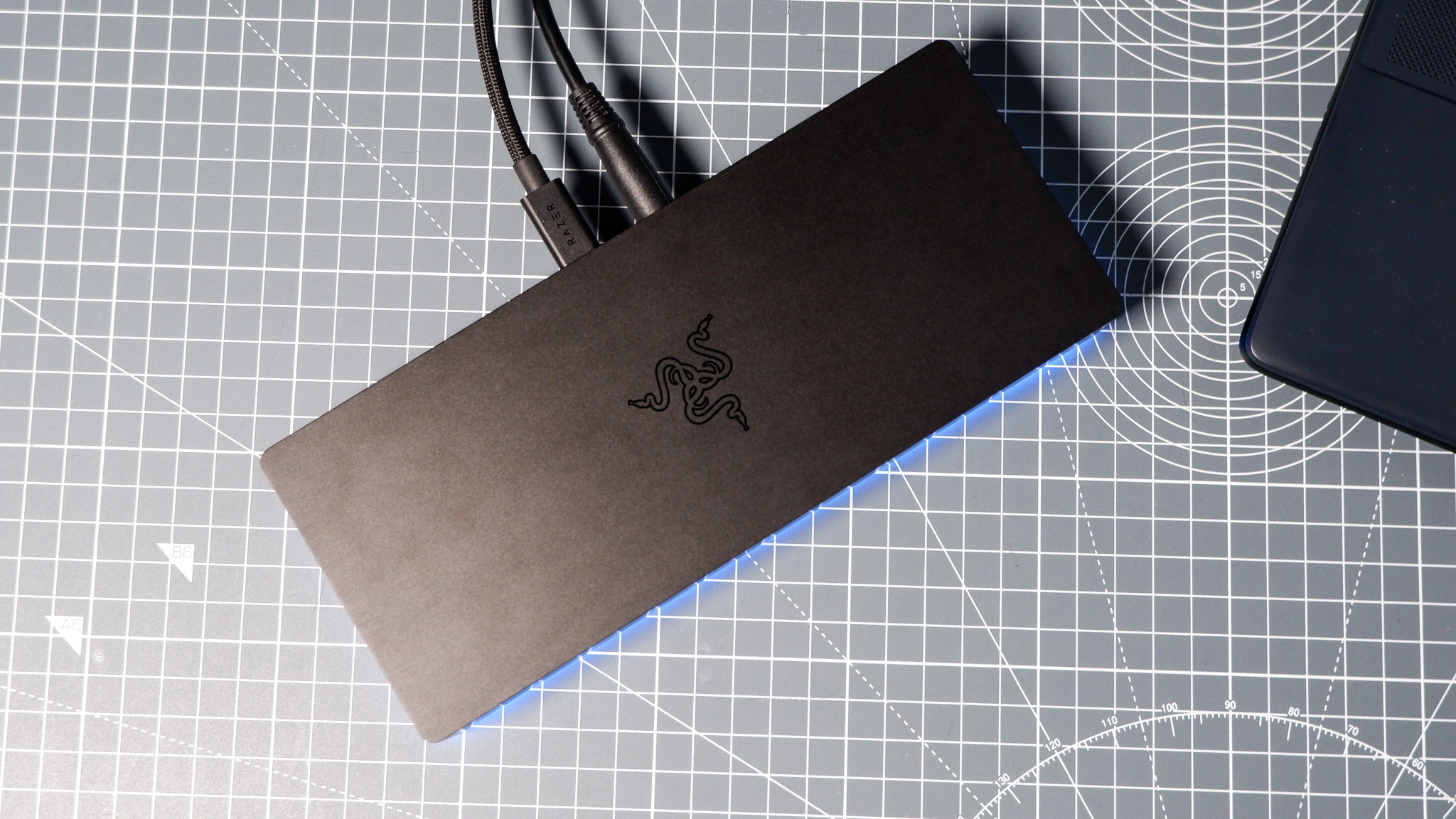Former Intel execs are fighting over whether splitting the company in two is a good idea and if the US government should step in to cleave it in twain
Some serious "judgement of Solomon" vibes going on here.

Intel's (very) public troubles have inevitably invited every tech commentator on the interwebs to posit a theory as to what should be done next with the troubled chipmaker. While Intel itself seems to be debating which bits to carve off to survive, several former executives have made their opinions known as to whether carving the company up is the best way forward, or whether that's a terrible idea for both Intel and the US as a whole.
Four former Intel directors have written a column for Fortune, suggesting that Intel should be forced to split its chip design and foundry business by the US government (via Tom's Hardware). They argue that, as Intel is the only large-scale American manufacturer of advanced semiconductors, it's in the interests of the US government to leverage its CHIPS act funding to force Intel "down a better path" by severing the chip maker into two separate businesses, just as AMD separated its manufacturing arm into GlobalFoundries back in 2009.
"The CHIPS Act gives the U.S. government $39 billion in grants to revive American semiconductor manufacturing. The government has already promised (but not yet disbursed) up to $8.5 billion in grants and $11.5 billion in low-cost loans for Intel.
Today, Intel threatens to become this administration’s Solyndra (the solar company, which went bankrupt after getting more than $500m in government funding). This would be disastrous, both for the government and Intel.
The government has the leverage to force Intel down a better path—and it must use it now."
However, former Intel CEO Craig Barrett has also written a piece for Fortune, arguing the opposite. According to Barrett, only three chipmakers currently have the revenue needed to sustain research and development costs— Intel, Samsung, and TSMC. Splitting Intel in two, Barrett argues, would potentially leave its foundry business without the necessary revenue to survive.
Given what happened to GlobalFoundries, it seems like a fair point. The company eventually found itself hamstrung by a lack of resources and dropped behind in the ongoing race for more advanced nodes, meaning that many high-end customers opted for its competitors' offerings instead.
Keep up to date with the most important stories and the best deals, as picked by the PC Gamer team.
Should the same happen to Intel's foundry business, the US would then be reliant on TSMC and Samsung to produce advanced chips. This reliance on foreign suppliers would leave the US vulnerable to geopolitical changes, especially regarding Taiwan-based TSMC and the country's ongoing tensions with China.
Both sides of the argument make good points. While the US government will likely be wary of throwing good money after bad when it comes to CHIPS act funding heading Intel's way, it will also likely be well aware that a failure for a US-based chip foundry business would put it in a precarious position when it comes to global supply chains and keeping up with the pack for long term chip manufacturing.
That being said, as things currently stand Intel is already well off the pace with its foundry business when it comes to competing with TSMC in the first place. Its new Arrow Lake desktop chips are merely assembled by Intel (making use of TSMC-produced tiles), and the foundry operation as a whole looks to be floundering even under Intel's monolithic watch.

Best gaming PC: The top pre-built machines.
Best gaming laptop: Great devices for mobile gaming.
Still, cleaving it from its mothership and expecting it to prosper strikes as a risky manoeuvre, even with US government money keeping its coffers full in the short term.
So, the ongoing "how do you solve a problem like Intel" debate continues, and some heavyweight names have made their opinions publicly known. Whether the US would be prepared to intervene and force Intel to split itself in two seems dependent on what decisions Intel makes internally next, and whether it decides to sell off its foundry business to keep afloat in the meantime.
Rumours have suggested that Intel and Samsung may have plans to join foundry forces to combat TSMC, which might put the cat among the pigeons in this regard.
It'll also likely be dependent on the upcoming US election, and which party finds itself in power over the next few months. While Biden's administration seems to have kept to the sidelines so far, there's nothing to say a new government might not take a stronger tack in an attempt to protect US chip-making facilities. It's still all to play for here, I guess, and what Intel might look like over the next few years still has a major question mark hanging over it for now.

Andy built his first gaming PC at the tender age of 12, when IDE cables were a thing and high resolution wasn't—and he hasn't stopped since. Now working as a hardware writer for PC Gamer, Andy spends his time jumping around the world attending product launches and trade shows, all the while reviewing every bit of PC gaming hardware he can get his hands on. You name it, if it's interesting hardware he'll write words about it, with opinions and everything.

